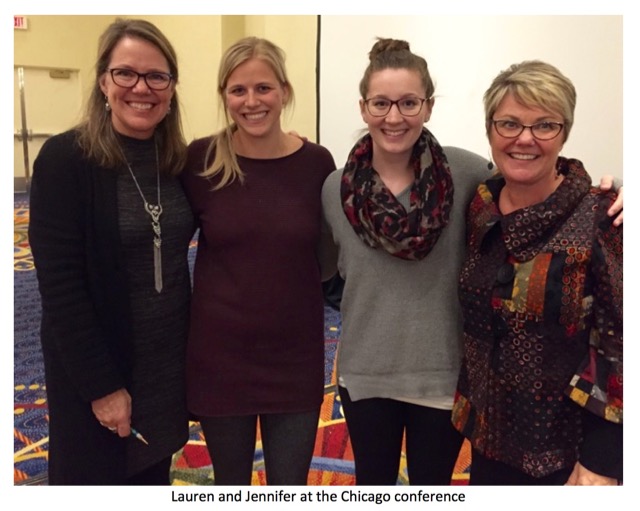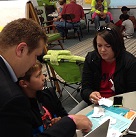We had the honor of being in Chicago and Baltimore in April, meeting and working with teachers from all over the world. Some were there to learn how our newest work and research has influenced our Daily 5, Math Daily 3 and CAFE practice. Others were hearing about our structure and system for the very first time. After each workshop and conference, we repeatedly heard how excited teachers were to start these new ideas in the fall, or to refine and implement their newest learning with their next group of students. 
Each time a teacher mentioned waiting until fall to try or refine Daily 5, Math Daily 3, or CAFE, we would respond, “Why wait? Start tomorrow!”
Research shows that the human brain is not capable of learning two new activities simultaneously. We often think we are capable of doing two things at once, such as going for a walk while listening to and comprehending a book on tape. Yet if we stop to consider, we realize we are actually doing one thing with automaticity (walking), which frees up our brain to do the new learning (comprehend the book).
So what does this brain research have to do with our advice to educators who feel that it's too close to the end of the school year to launch Daily 5, CAFE, or Math Daily 3, or to make refinements to their teaching? By trying new practices now, with the class you know and have a relationship with, your brain will be able to focus on what's new. The fact that you and your students have automaticity with a myriad of other things (such as where to sit during the lesson, how to operate the document camera, or small things like knowing exactly where to reach for a pen to write on the chart paper) allows for your new ideas to be practiced and learned.
Anytime we are learning something new, trying out a new practice, or changing something in our teaching, it is powerful to experience it and practice it, allowing the new learning to move, or begin to move, to a level of automaticity.
By trying out new things toward the end of the school year, or even in the very last week or so, we are providing ourselves with needed practice time without the other distractions that are present in the beginning of a new school year. Starting now gives our brain an opportunity to more quickly move our practice to a level of automaticity. Therefore, when we start again after a summer break, we will have muscle memory to support us since we have participated in the practice before.
In addition, trying out and learning something new at the end of the year can spark new energy and enthusiasm for school in your classroom! We find that our students love to be part of our new learning, and we believe in the power of modeling making changes, trying new things, and making refinements in front of them.
What are some new components to your teaching practice that you want to try out, refine, or change? Why wait? Start tomorrow!
News from The Daily CAFE

How are they doing? . . .
Assessing Each CAFE Strategy*
If you want to assess student understanding and application of their individualized CAFE Menu strategies, look no further. Each assessment guide includes Common Core alignment, possible text selections, a link to the corresponding Ready Reference Guide, various options for monitoring progress, and a 1–4 rubric scale.
 Math Motivation . . .
Math Motivation . . .
Encouraging Summer Practice
Here are four ways to encourage math practice over summer vacation.
 Brain-Friendly Lessons . . .
Brain-Friendly Lessons . . .
Make a Picture or Mental Image: Grade-Level-Specific Lessons*
These books and conversations will get students in grades one through six in the habit of making movies in their minds as they read.
 Focus on Health . . .
Focus on Health . . .
One Word That Brings Peace
What brings you peace?
*Available to members
Professional Development Opportunities
|
2016 Live Workshops Join The 2 Sisters at a LIVE workshop to learn about current research and practices supporting Daily 5, Math Daily 3, and CAFE. Select a location below and sign up while space is still available.
|
Online Seminars Prefer short bursts of information combined with independent learning? Each session offers separate seminars on Daily 5, CAFE, and Math Daily 3.
Courses are filled on a first come, first served basis.
|





